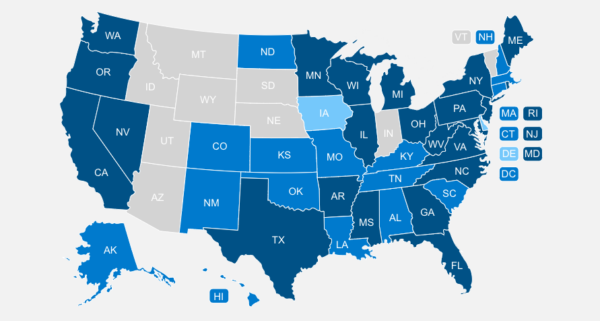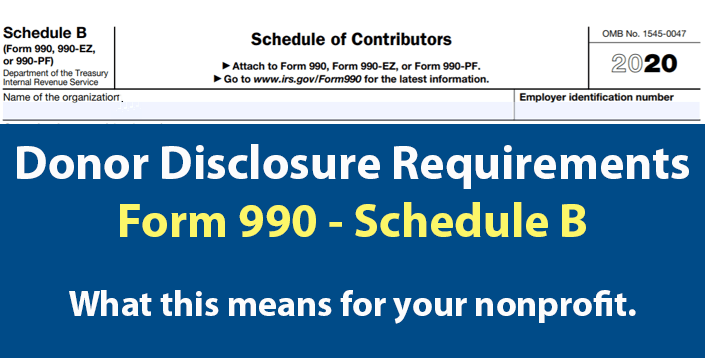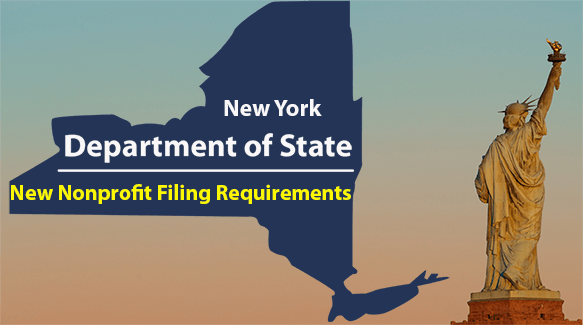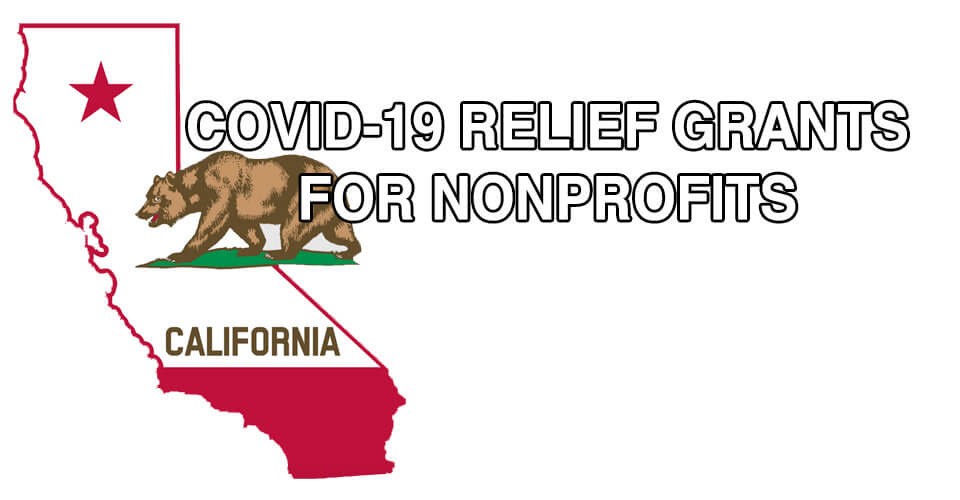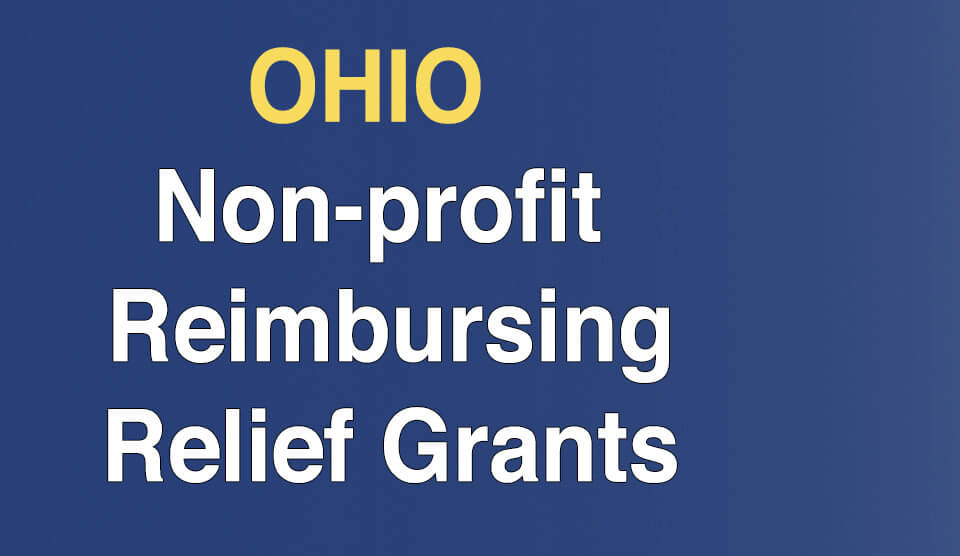
Inc5000 Nonprofit State Registration Company
August 18, 2021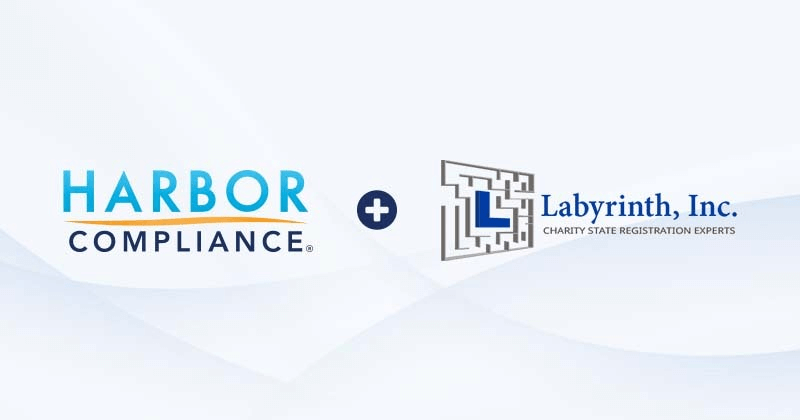
Labyrinth, Inc. and Harbor Compliance Are Now One
October 6, 2021Charitable Compliance Guide

Charitable Compliance 101: A Beginner’s Guide
Many well-intentioned individuals or groups who want to make a difference by starting a nonprofit organization are usually unequipped or unprepared to marshal the necessary resources in terms of personnel, sustaining a steady stream of charitable contributions, and particularly complying with charitable state solicitation registration laws. New and many existing nonprofits underestimate the amount of work, diligence, and understanding of state-specific statutes that are required to remain in good standing in state(s) where they operate and/or fundraise.
It is quite easy to start a nonprofit. Once you are set on your cause, all you need to do is to come up with a name for your new nonprofit, obtain an Employer Identification Number, incorporate in your state, draft corporate Bylaws, and file an IRS Form 1023 or 1023-EZ application to obtain a federal tax exemption determination under Internal Revenue Code Section 501(c)(3). If filing IRS Form 1023, you will be required to submit your bylaws and articles of incorporation, pay the filing fee, and voila!
That is the easy part. Charitable compliance might not be as straightforward. In fact, setting aside managing day-to-day operations of a nonprofit, and fundraising for your cause, which are in themselves quite challenging, charitable registration and ongoing IRS and charitable state compliance requirements are complex and time-consuming.
The consequences of failure to comply with IRS as well as state registration and financial reporting requirements could result in penalties, fines, loss of your nonprofit tax-exempt status, and in some cases forfeiture. Given the fact that IRS and state filings are available to the general public, it is therefore important to have an unblemished record. A prospective large donor is less likely to donate to a nonprofit with a blemish on its records.
Here at Labyrinth, Inc., we specialize in charitable compliance. For over 30 years, we have helped thousands of nonprofit organizations with all their registration and reporting requirements. We receive daily calls from well-intentioned charitable organizations that have incurred fines and/or had their tax-exempt status revoked. Some of the common reasons we hear include failure to replace experienced personnel by someone of equal experience, and failure to keep up with ever-changing compliance regulations.
Why Charitable Regulations and Compliance Matter
You may be asking yourself why charitable compliance is so complex given that the whole intention of a nonprofit organization is solely for the benefit of society. It is a fair question, however, I believe you will agree with the fact that nonprofit organizations have certain moral obligations and, as such, have the responsibility to uphold the highest ethical standards in managing their financial resources. It is unfortunate that there are a few who will defraud society for their own benefit. To protect society from potential fraudulent nonprofit practices, nonprofits are required to comply with all legal financial requirements and adhere to sound accounting principles that ensure fiscal responsibility to maintain public trust.
Fundraising Registration Requirements
Charitable solicitation or fundraising for charitable purposes is regulated in most states. Most states require some form of registration before nonprofit organizations can legally solicit contributions from their residents. Once registered, nonprofit organizations are required to comply with both federal and state financial reporting requirements as part of their charitable registration renewal requirement. The principal reason for this ongoing nonprofit financial reporting is to continuously assure the public that a nonprofit organization is meeting its financial as well as ethical responsibility. In most cases, once a nonprofit reaches a certain threshold on annual contributions or receives governmental grants, organizations are required to submit audited financial statements performed by an independent certified public accountant.
Penalties for Nonprofit Non-compliance
501(c)(3) organizations are exempt from paying federal and state taxes. They have access to public funding by means of charitable contributions, and government grants. It is because of this that nonprofits are held to high standards.
Unfortunately, many nonprofit organizations are unaware of the consequences of non-compliance until they get a dreaded letter in the mail from the IRS or state. Ignorance or negligence does not excuse a nonprofit organization from its mandatory financial reporting requirement.
Obligations to the IRS: Nonprofits are required to file annual information with the IRS using appropriate information return for a nonprofit organization – IRS Form 990/990-EZ/990-PF. Form 990 can be looked at as a testimony of a nonprofit organization making a case to keep its tax-exempt status. Form 990 collects information about a nonprofit’s mission, programs, and finances.
The penalty for filing the annual Form 990 late is $20 per day and capped at a maximum of $10,000. Organizations that willfully fail to file could be subjected to an additional penalty of $5,000. There are also penalties that could be assessed for omitting information. The IRS could revoke a nonprofit’s 501(c)(3) status if it fails to file its Form 990 for three consecutive years.
The IRS Form 990 is a public document and under IRC 6014(d), organizations are required to provide copies of their three most recent Forms 990s to anyone who requests them, whether in person, by mail, fax, or email.
Obligations to the States: Charitable solicitation compliance is regulated at the state level. 40 states plus the District of Columbia have state-specific statutes regulating registration and reporting. What organizations are required to register before soliciting in a state? Which ones are exempt from registration? What triggers registration, etc.? These questions are answered in our detailed state-by-state fundraising registration and compliance guide.
Failure to comply with charitable state compliance regulations could result in the administrative dissolution of a nonprofit organization. Organizations can also be prevented from receiving grants or sizable donations. Compliance solidifies your status as a well-run organization with a mission worthy of support.
Review our nonprofit compliance checklist to make sure you remain in good standing with the IRS and States. Contact us for a free no-obligation consultation.
